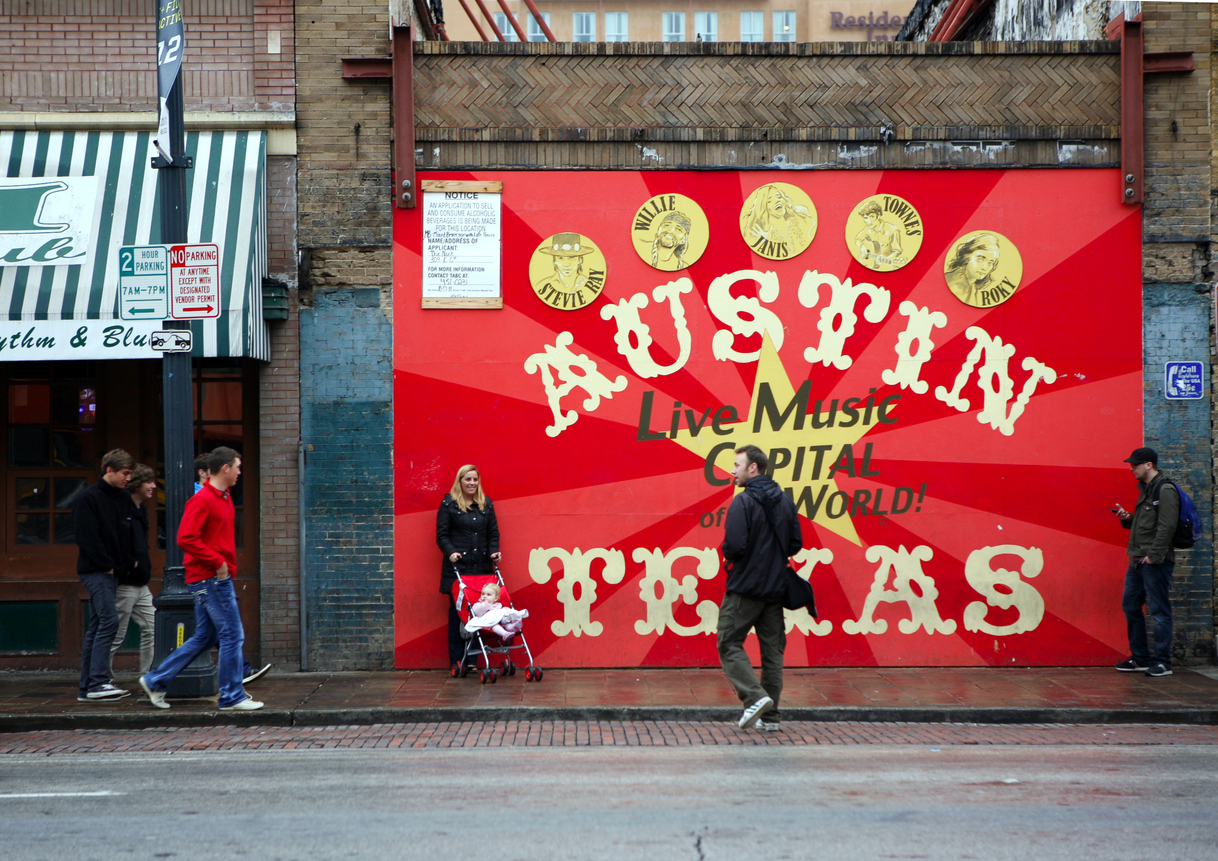No, Austin isn't changing its name


A free daily email with the biggest news stories of the day – and the best features from TheWeek.com
You are now subscribed
Your newsletter sign-up was successful
Last week, Austin's Equity Office recommended that the Texas capital rename seven streets with Confederate-linked names and remove three history markers celebrating the Confederacy. But while Dixie Drive, Confederate Avenue, and Plantation Road may disappear in Austin, the city is unlikely to change its name, as not-quite-proposed in a second list of municipal items not directly tied to the Confederacy but tangentially connected through things like slavery and segregation. On that second list, proposed for discussion by the City Council, was the city's name itself, an homage to the "Father of Texas," Stephen F. Austin.
Austin, who died in 1836, had a complicated relationship with slavery, clearly tolerating it and encouraging retaining slavery for the economic success of Texas but not embracing it ideologically. Still, "no one sees this as an attempt to change the name of the city," David Green, a spokesman for the city, told The Washington Post on Sunday. Changing Austin's name would require a citywide vote, and lots of debate over what appellation would be better — perhaps Waterloo, Austin's name before 1839.
Walter L. Buenger, a history professor at the University of Texas at Austin, called the idea of changing Austin's name "far-fetched," and Gregg Cantrell, a Stephen Austin biographer and history professor at Texas Christian University, said the proposal wouldn't even make sense. Austin "didn't leave a paper trail" on whether he viewed African Americans as inferior to whites, Cantrell told the Post, but since he died three decades before the Civil War began, he wasn't a seditious figure like the Confederate generals and leaders whose monuments are being removed across the country. "Austin never had to make the choice Robert E. Lee made," Cantrell said. "We can't tar him with that particular brush."
The Week
Escape your echo chamber. Get the facts behind the news, plus analysis from multiple perspectives.

Sign up for The Week's Free Newsletters
From our morning news briefing to a weekly Good News Newsletter, get the best of The Week delivered directly to your inbox.
From our morning news briefing to a weekly Good News Newsletter, get the best of The Week delivered directly to your inbox.
A free daily email with the biggest news stories of the day – and the best features from TheWeek.com
Peter has worked as a news and culture writer and editor at The Week since the site's launch in 2008. He covers politics, world affairs, religion and cultural currents. His journalism career began as a copy editor at a financial newswire and has included editorial positions at The New York Times Magazine, Facts on File, and Oregon State University.
-
 Crisis in Cuba: a ‘golden opportunity’ for Washington?
Crisis in Cuba: a ‘golden opportunity’ for Washington?Talking Point The Trump administration is applying the pressure, and with Latin America swinging to the right, Havana is becoming more ‘politically isolated’
-
 5 thoroughly redacted cartoons about Pam Bondi protecting predators
5 thoroughly redacted cartoons about Pam Bondi protecting predatorsCartoons Artists take on the real victim, types of protection, and more
-
 Palestine Action and the trouble with defining terrorism
Palestine Action and the trouble with defining terrorismIn the Spotlight The issues with proscribing the group ‘became apparent as soon as the police began putting it into practice’
-
 Nobody seems surprised Wagner's Prigozhin died under suspicious circumstances
Nobody seems surprised Wagner's Prigozhin died under suspicious circumstancesSpeed Read
-
 Western mountain climbers allegedly left Pakistani porter to die on K2
Western mountain climbers allegedly left Pakistani porter to die on K2Speed Read
-
 'Circular saw blades' divide controversial Rio Grande buoys installed by Texas governor
'Circular saw blades' divide controversial Rio Grande buoys installed by Texas governorSpeed Read
-
 Los Angeles city workers stage 1-day walkout over labor conditions
Los Angeles city workers stage 1-day walkout over labor conditionsSpeed Read
-
 Mega Millions jackpot climbs to an estimated $1.55 billion
Mega Millions jackpot climbs to an estimated $1.55 billionSpeed Read
-
 Bangladesh dealing with worst dengue fever outbreak on record
Bangladesh dealing with worst dengue fever outbreak on recordSpeed Read
-
 Glacial outburst flooding in Juneau destroys homes
Glacial outburst flooding in Juneau destroys homesSpeed Read
-
 Scotland seeking 'monster hunters' to search for fabled Loch Ness creature
Scotland seeking 'monster hunters' to search for fabled Loch Ness creatureSpeed Read
